Lecturer/Speaker Bios
Alexandre Bonvin
 Alexandre Bonvin studied Chemistry at Lausanne University, Switzerland and obtained his PhD at Utrecht University in the Netherlands (1993). After two post-doc periods at Yale University (USA) and the ETHZ (CH), he joined Utrecht University in 1998 and was appointed full professor of computational structural biology in 2009. In 2006, he received a prestigious VICI grant from the Dutch Research Council. He was director of chemical education (2009-2012), vice head of the Chemistry Department (2010-2012) and Scientific Director of the Bijvoet Centre for Biomolecular Research (2019-2023). He has participated in several EU projects including the BioExcel Center of Excellence in Biomolecular Simulations. His work has resulted in over 275 peer-reviewed publications.
Alexandre Bonvin studied Chemistry at Lausanne University, Switzerland and obtained his PhD at Utrecht University in the Netherlands (1993). After two post-doc periods at Yale University (USA) and the ETHZ (CH), he joined Utrecht University in 1998 and was appointed full professor of computational structural biology in 2009. In 2006, he received a prestigious VICI grant from the Dutch Research Council. He was director of chemical education (2009-2012), vice head of the Chemistry Department (2010-2012) and Scientific Director of the Bijvoet Centre for Biomolecular Research (2019-2023). He has participated in several EU projects including the BioExcel Center of Excellence in Biomolecular Simulations. His work has resulted in over 275 peer-reviewed publications.
ingapore from Precision Medicine to Consumer Product and Food Safety and of course for his critical contributions to national and global viral pathogen surveillance through the GISAID data science initiative that has become the single most important source for virus outbreak data sharing and analysis in this pandemic powering public health responses globally. He was awarded the 2017 A*STAR STAR Award, 2017 PS(Health) Award – Excellence (Team), 2018 Ministry of Health collaborator long-service award, 2022 Public Administration Medal (Silver) under the National Awards (COVID-19) and 2024 Public Sector Transformation Award – Exemplary Leader Award.
Jens Domke
 Jens Domke is the Team Leader of the Supercomputing Performance Research Team at the RIKEN Center for Computational Science (R-CCS), Japan. He received his doctoral degree from the Technische Universität Dresden, Germany, in 2017 for his work on HPC routing algorithms and interconnects. Jens started his career in HPC in 2008, after he and a team of five students of the TU Dresden and Indiana University, won the Student Cluster Competition at SC08. Since then, he published dozens of peer-reviewed journal and conference articles. Jens contributed the DFSSSP and Nue routing algorithms to the subnet manager of InfiniBand, and built the first large-scale HyperX prototype at the Tokyo Institute of Technology. His research interests include system co-design, performance evaluation, extrapolation, and modelling, interconnect networks, and optimization of parallel applications and architectures.
Jens Domke is the Team Leader of the Supercomputing Performance Research Team at the RIKEN Center for Computational Science (R-CCS), Japan. He received his doctoral degree from the Technische Universität Dresden, Germany, in 2017 for his work on HPC routing algorithms and interconnects. Jens started his career in HPC in 2008, after he and a team of five students of the TU Dresden and Indiana University, won the Student Cluster Competition at SC08. Since then, he published dozens of peer-reviewed journal and conference articles. Jens contributed the DFSSSP and Nue routing algorithms to the subnet manager of InfiniBand, and built the first large-scale HyperX prototype at the Tokyo Institute of Technology. His research interests include system co-design, performance evaluation, extrapolation, and modelling, interconnect networks, and optimization of parallel applications and architectures.
Jack Dongarra
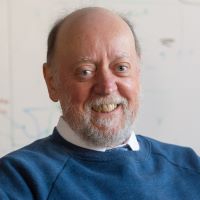 Jack Dongarra specializes in numerical algorithms in linear algebra, parallel computing, the use of advanced computer architectures, programming methodology, and tools for parallel computers. He holds appointments at the University of Manchester, Oak Ridge National Laboratory, and the University of Tennessee. In 2019, he received the ACM/SIAM Computational Science and Engineering Prize. In 2020, he received the IEEE-CS Computer Pioneer Award. In 2022 he received the ACM A.M. Turing Award for his pioneering contributions to numerical algorithms and software that have driven decades of extraordinary progress in computing performance and applications. He is a Fellow of the AAAS, ACM, IEEE, and SIAM; a foreign member of the British Royal Society and a member of the U.S. National Academy of Sciences and the U.S. National Academy of Engineering.
Jack Dongarra specializes in numerical algorithms in linear algebra, parallel computing, the use of advanced computer architectures, programming methodology, and tools for parallel computers. He holds appointments at the University of Manchester, Oak Ridge National Laboratory, and the University of Tennessee. In 2019, he received the ACM/SIAM Computational Science and Engineering Prize. In 2020, he received the IEEE-CS Computer Pioneer Award. In 2022 he received the ACM A.M. Turing Award for his pioneering contributions to numerical algorithms and software that have driven decades of extraordinary progress in computing performance and applications. He is a Fellow of the AAAS, ACM, IEEE, and SIAM; a foreign member of the British Royal Society and a member of the U.S. National Academy of Sciences and the U.S. National Academy of Engineering.
Peter Dueben
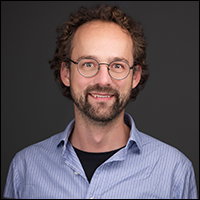 Peter is the Head of the Earth System Modelling Section at the European Centre for Medium Range Weather Forecasts (ECMWF) developing one of the world’s leading global weather forecast models — The Integrated Forecasting System (IFS). He is also a Honorary Professor at the University of Cologne. Before, he was AI and Machine Learning Coordinator at ECMWF and University Research Fellow of the Royal Society performing research towards the use of machine learning, high-performance computing, and reduced numerical precision in weather and climate simulations. Peter is coordinator of the WeatherGenerator Horizon Europe project that aims to build a machine-learned foundation model for weather and climate applications and has been the coordinator of the MAELSTROM EuroHPC-Joint Undertaking project.
Peter is the Head of the Earth System Modelling Section at the European Centre for Medium Range Weather Forecasts (ECMWF) developing one of the world’s leading global weather forecast models — The Integrated Forecasting System (IFS). He is also a Honorary Professor at the University of Cologne. Before, he was AI and Machine Learning Coordinator at ECMWF and University Research Fellow of the Royal Society performing research towards the use of machine learning, high-performance computing, and reduced numerical precision in weather and climate simulations. Peter is coordinator of the WeatherGenerator Horizon Europe project that aims to build a machine-learned foundation model for weather and climate applications and has been the coordinator of the MAELSTROM EuroHPC-Joint Undertaking project.
Kedar Hippalgaonkar
Associate Professor Kedar Hippalgaonkar’s research interests are in AI-driven solid-state materials-by-design. He holds a joint appointment as an associate professor with the Materials Science and Engineering Department at NTU, and as a Principal Scientist at IMRE, A*STAR. He is also the Scientific Director of the Multi-PI S$9M Mat-GDT (Materials Generative Design and Testing Framework) program starting in 2024. He was also the Scientific Director of a S$25 Million Accelerated Materials Development for Manufacturing (AMDM) program from 2018 – 2024. Leading a group of >30 members, he has demonstrated clear areas of advancement in the discovery of new functional materials, AI and robotics for accelerated materials discovery, and advancing fundamental knowledge in inequilibrium charge and phonon scattering. His scientific contributions in the materials-by-design space have established a framework for the rapid discovery of materials and new physics, which is now being utilised globally in data-driven research. His commitment to translating scientific research into tangible real-world applications is exemplified by his role as the Co-founder and Senior Scientific Advisor of a startup – Xinterra, Inc. As a contributing member of the newly established Acceleration Consortium at the University of Toronto, Kedar collaborates with an international community of scientists dedicated to the creation of materials acceleration platforms. These platforms are pivotal in unlocking new discoveries in molecules and materials, further expanding the horizon of scientific understanding.
Yuji Iguchi
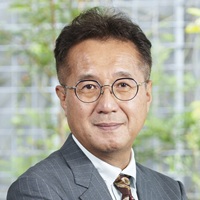 Yuji Iguchi is a Deputy Director at the Operations and Computer Technologies Division in the RIKEN Center for Computational Science, and his tasks include system operation and enhance of Fugaku. Before joining RIKEN, he managed the development of system software for successive supercomputers such as the K computer and Fugaku at Fujitsu Limited. His current technical interests include system operation improvements of large-scale supercomputers and building the Arm eco-system.
Yuji Iguchi is a Deputy Director at the Operations and Computer Technologies Division in the RIKEN Center for Computational Science, and his tasks include system operation and enhance of Fugaku. Before joining RIKEN, he managed the development of system software for successive supercomputers such as the K computer and Fugaku at Fujitsu Limited. His current technical interests include system operation improvements of large-scale supercomputers and building the Arm eco-system.
Yang Juntao
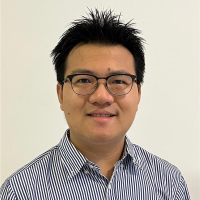 Juntao Yang is a solutions architect at NVIDIA, part of the NVIDIA AI Technology Center (Singapore). He works with researchers and scientists in the HER sector in the Asia Pacific (SEA+ANZ) region to solve impactful research problems with state-of-the-art NVIDIA technology. The convergence of scientific computing and AI is his main interest. He also values engagements with businesses and industries for the adoption of new technologies.
Juntao Yang is a solutions architect at NVIDIA, part of the NVIDIA AI Technology Center (Singapore). He works with researchers and scientists in the HER sector in the Asia Pacific (SEA+ANZ) region to solve impactful research problems with state-of-the-art NVIDIA technology. The convergence of scientific computing and AI is his main interest. He also values engagements with businesses and industries for the adoption of new technologies.
Yoshiyuki Kajikawa
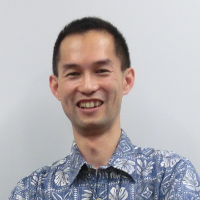 Dr. Yoshiyuki Kajikawa is a Senior Scientist of the Computational Climate Science Research Team at RIKEN Center for Computational Science (R-CCS). He is also a Project Professor of Research Center for Urban Safety and Security (RCCUSS) at Kobe University since 2016.He has studied climate variability over the Asian region and acquired Ph.D. (Science) at Nagoya University in 2005. He conducted climate diagnostic research as postdoctoral fellowship at the International Pacific Research Center (IPRC), University of Hawaii, USA from 2005 to 2009 and at the Nagoya University from 2009 to 2012.Since 2012, he has been in Research scientist position in RIKEN, he continued to work on the climate system studies on the hierarchical structure from deep convections, cloudy synoptic disturbances to general circulation by global cloud-resolving model. He is as specialist on and particularly interested in the multi-scale interaction of the Asian monsoon climate.
Dr. Yoshiyuki Kajikawa is a Senior Scientist of the Computational Climate Science Research Team at RIKEN Center for Computational Science (R-CCS). He is also a Project Professor of Research Center for Urban Safety and Security (RCCUSS) at Kobe University since 2016.He has studied climate variability over the Asian region and acquired Ph.D. (Science) at Nagoya University in 2005. He conducted climate diagnostic research as postdoctoral fellowship at the International Pacific Research Center (IPRC), University of Hawaii, USA from 2005 to 2009 and at the Nagoya University from 2009 to 2012.Since 2012, he has been in Research scientist position in RIKEN, he continued to work on the climate system studies on the hierarchical structure from deep convections, cloudy synoptic disturbances to general circulation by global cloud-resolving model. He is as specialist on and particularly interested in the multi-scale interaction of the Asian monsoon climate.
Jin-Sung Kim
 Jin-Sung Kim is a Developer Relations Manager for quantum computing at NVIDIA and leads partnerships and alliances. Prior to NVIDIA, he was a Research Staff Member at IBM Quantum. Jin-Sung holds a PhD in Electrical Engineering and Materials Science from Princeton.
Jin-Sung Kim is a Developer Relations Manager for quantum computing at NVIDIA and leads partnerships and alliances. Prior to NVIDIA, he was a Research Staff Member at IBM Quantum. Jin-Sung holds a PhD in Electrical Engineering and Materials Science from Princeton.
Chigusa Kobayashi
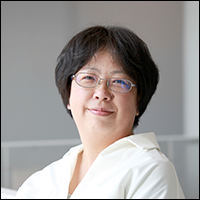 Chigusa Kobayashi is a senior technical scientist at the software development technology unit, RIKEN Center for Computational Science (R-CCS), Japan. She is also a senior technical scientist at R-CCS's computational biophysics research team. She received a B.Sc. degree in 1996 from the Chemistry department, Faculty of Science, Nagoya University, an M.Sc. in 1998 from the Graduate School of Science at Nagoya University, and a D. Sc. in 2000 from the Graduate School of Science at Nagoya University. She worked as a postdoctoral fellow at Nagoya University, Japan (2001), University of California, San Diego, USA (2001-2003), Kobe University, Japan (2003-2006), Institute for Molecular Science, Japan (2006-2011), as a contract researcher at RIKEN Advanced Science Institute, Japan (2011-2013), as a research scientist (2013-2020) and a technical scientist (2020-2024) at R-CCS. She has been in her current position since 2024. Her research interests include computer simulations of biological systems like a membrane protein and a soluble protein. She has investigated structural changes of a protein and developed models and methods to understand it.
Chigusa Kobayashi is a senior technical scientist at the software development technology unit, RIKEN Center for Computational Science (R-CCS), Japan. She is also a senior technical scientist at R-CCS's computational biophysics research team. She received a B.Sc. degree in 1996 from the Chemistry department, Faculty of Science, Nagoya University, an M.Sc. in 1998 from the Graduate School of Science at Nagoya University, and a D. Sc. in 2000 from the Graduate School of Science at Nagoya University. She worked as a postdoctoral fellow at Nagoya University, Japan (2001), University of California, San Diego, USA (2001-2003), Kobe University, Japan (2003-2006), Institute for Molecular Science, Japan (2006-2011), as a contract researcher at RIKEN Advanced Science Institute, Japan (2011-2013), as a research scientist (2013-2020) and a technical scientist (2020-2024) at R-CCS. She has been in her current position since 2024. Her research interests include computer simulations of biological systems like a membrane protein and a soluble protein. She has investigated structural changes of a protein and developed models and methods to understand it.
Kimmo Koski
 Dr. Kimmo Koski started as a CEO at CSC in August 2004 with a mission to support Finnish research providing world-class e-infrastructure and related services. This includes investments in national resources and active participation in European initiatives. The most recent example is the eco-efficient datacenter hosting the LUMI EuroHPC system, which is one of the most efficient computing platforms in the world. Previous assignments include work at Nokia, CERN and CSC in different position than today.
Dr. Kimmo Koski started as a CEO at CSC in August 2004 with a mission to support Finnish research providing world-class e-infrastructure and related services. This includes investments in national resources and active participation in European initiatives. The most recent example is the eco-efficient datacenter hosting the LUMI EuroHPC system, which is one of the most efficient computing platforms in the world. Previous assignments include work at Nokia, CERN and CSC in different position than today.
Koski has been involved in various European and global collaborations in high-performance computing, data management, networks and cloud activities. Examples include EU initiatives, such as EuroHPC, EUDAT, EOSC and PRACE. Increasing focus is artificial intelligence and quantum computing. Targets for the near future include building more intense HPC and data driven collaboration with global partners such as supercomputer centers and national laboratories.
Maddegedara Lalith
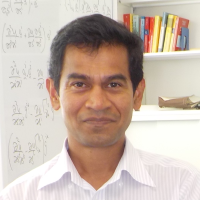 Maddegedara Lalith received a B.E. in Civil Eng. from the Univ. of Peradeniya, Peradeniya, Sri Lanka in 1999. He obtained his M.E. and Ph.D. degrees in Civil Eng. from the Univ. of Tokyo, Japan in 2000, and 2005, respectively. He is currently an associate professor with the Earthquake Research Institute (ERI) and the Dept. of Civil Eng. of the Univ. of Tokyo. His research interests lie in agent-based modeling for disaster mitigation, computational mechanics, large-scale simulations of fault rupture and other crack propagation phenomena, and integrated simulations of earthquake disasters and their aftermath.
Maddegedara Lalith received a B.E. in Civil Eng. from the Univ. of Peradeniya, Peradeniya, Sri Lanka in 1999. He obtained his M.E. and Ph.D. degrees in Civil Eng. from the Univ. of Tokyo, Japan in 2000, and 2005, respectively. He is currently an associate professor with the Earthquake Research Institute (ERI) and the Dept. of Civil Eng. of the Univ. of Tokyo. His research interests lie in agent-based modeling for disaster mitigation, computational mechanics, large-scale simulations of fault rupture and other crack propagation phenomena, and integrated simulations of earthquake disasters and their aftermath.
Bernd Mohr
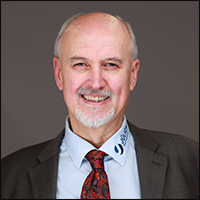 Bernd Mohr started to design and develop tools for performance analysis of parallel programs already with his diploma thesis (1987) at the University of Erlangen in Germany, and continued this in his Ph.D. work (1987 to 1992). During a three-year postdoc position at the University of Oregon, he designed and implemented the original TAU performance analysis framework. Since 1996, he has been a senior scientist at Forschungszentrum Juelich. Since 2000, he has been the team leader of the group ''Programming Environments and Performance Analysis''. Besides being responsible for user support and training in regard to performance tools at the Juelich Supercomputing Centre (JSC), he is leading the Scalasca performance tools efforts in collaboration with Prof. Felix Wolf of TU Darmstadt. Since October 2022, he also serves as head for the JSC division ''Application support'', for which he was deputy head for 15 years. He was an active member in the International Exascale Software Project (IESP/BDEC) and work package leader in the European (EESI2) and Juelich (EIC, ECL) Exascale efforts. For the SC and ISC Conference series, he served on the Steering Committee. He is the author of several dozen conference and journal articles about performance analysis and tuning of parallel programs.
Bernd Mohr started to design and develop tools for performance analysis of parallel programs already with his diploma thesis (1987) at the University of Erlangen in Germany, and continued this in his Ph.D. work (1987 to 1992). During a three-year postdoc position at the University of Oregon, he designed and implemented the original TAU performance analysis framework. Since 1996, he has been a senior scientist at Forschungszentrum Juelich. Since 2000, he has been the team leader of the group ''Programming Environments and Performance Analysis''. Besides being responsible for user support and training in regard to performance tools at the Juelich Supercomputing Centre (JSC), he is leading the Scalasca performance tools efforts in collaboration with Prof. Felix Wolf of TU Darmstadt. Since October 2022, he also serves as head for the JSC division ''Application support'', for which he was deputy head for 15 years. He was an active member in the International Exascale Software Project (IESP/BDEC) and work package leader in the European (EESI2) and Juelich (EIC, ECL) Exascale efforts. For the SC and ISC Conference series, he served on the Steering Committee. He is the author of several dozen conference and journal articles about performance analysis and tuning of parallel programs.
Kengo Nakajima
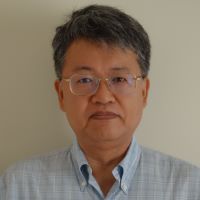 Kengo Nakajima is a Professor, Supercomputing Research Division, Information Technology Center, the University of Tokyo since 2008. Prior to joining the University of Tokyo in 2004, he spent 19 years in industry. He is also a Deputy Director of RIKEN R-CCS since 2018. His research interest covers computational mechanics, computational fluid dynamics (CFD), numerical linear algebra, parallel iterative algorithms, parallel preconditioning methods, multigrid methods, parallel programming models, adaptive mesh refinement (AMR), and parallel visualization. B.Eng (1985, Aeronautics, University of Tokyo), M.S. (1993, Aerospace Engineering, University of Texas at Austin), Ph.D. (2003, Engineering Mechanics, University of Tokyo).
Kengo Nakajima is a Professor, Supercomputing Research Division, Information Technology Center, the University of Tokyo since 2008. Prior to joining the University of Tokyo in 2004, he spent 19 years in industry. He is also a Deputy Director of RIKEN R-CCS since 2018. His research interest covers computational mechanics, computational fluid dynamics (CFD), numerical linear algebra, parallel iterative algorithms, parallel preconditioning methods, multigrid methods, parallel programming models, adaptive mesh refinement (AMR), and parallel visualization. B.Eng (1985, Aeronautics, University of Tokyo), M.S. (1993, Aerospace Engineering, University of Texas at Austin), Ph.D. (2003, Engineering Mechanics, University of Tokyo).
Jorji Nonaka
 Jorji Nonaka is a Technical Scientist at the Operations and Computer Technologies Division in the RIKEN Center for Computational Science (R-CCS), and his tasks include maintenance and user support of Fugaku’s large data visualization environment. He received his B.Sc. and M.Sc. from the University of Brasilia, Brazil, and his Ph.D. from Kyoto University, Japan. Before joining RIKEN, he worked as a post-doc researcher at Kyoto University and as a system engineer at KGT Inc., Japan, as well as a visiting professor at the Federal University of Pernambuco (UFPE), Brazil. His current research interests include scientific visualization, visual data analytics, and in-situ processing.
Jorji Nonaka is a Technical Scientist at the Operations and Computer Technologies Division in the RIKEN Center for Computational Science (R-CCS), and his tasks include maintenance and user support of Fugaku’s large data visualization environment. He received his B.Sc. and M.Sc. from the University of Brasilia, Brazil, and his Ph.D. from Kyoto University, Japan. Before joining RIKEN, he worked as a post-doc researcher at Kyoto University and as a system engineer at KGT Inc., Japan, as well as a visiting professor at the Federal University of Pernambuco (UFPE), Brazil. His current research interests include scientific visualization, visual data analytics, and in-situ processing.
Camila Pontes
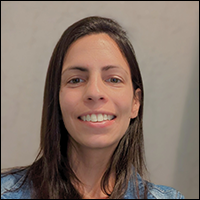 Camila Pontes is a Postdoctoral Researcher at the Barcelona Supercomputing Center (BSC) with an interdisciplinary background in Biology and Computer Science. After obtaining her MSc and PhD degrees in Computational Biology, she was awarded the “Juan de la Cierva – Formación'' fellowship by the Spanish government. Over the last three years, she has been working on different European Projects in the fields of Health and Biotechnology, focusing on applying protein Language Models (pLMs) to protein design.
Camila Pontes is a Postdoctoral Researcher at the Barcelona Supercomputing Center (BSC) with an interdisciplinary background in Biology and Computer Science. After obtaining her MSc and PhD degrees in Computational Biology, she was awarded the “Juan de la Cierva – Formación'' fellowship by the Spanish government. Over the last three years, she has been working on different European Projects in the fields of Health and Biotechnology, focusing on applying protein Language Models (pLMs) to protein design.
Kerwin Tsai
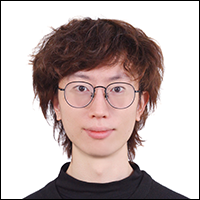 Kerwin Tsai is a Software Engineer in the AMD University Program Team, part of the AMD Research and Advanced Development Group. Before joining AMD, he gained service experience at a cloud application company. He holds a Master’s degree from National Tsing Hua University. Kerwin has experience in Cloud Service Development, High-Performance Computing (HPC), Cluster DevOps, and GPU programming. His expertise was honed through participation in the Student Cluster Competition. Additionally, Kerwin was the coach of the SC22 and ISC23 Student Cluster Competition team from NTHU.
Kerwin Tsai is a Software Engineer in the AMD University Program Team, part of the AMD Research and Advanced Development Group. Before joining AMD, he gained service experience at a cloud application company. He holds a Master’s degree from National Tsing Hua University. Kerwin has experience in Cloud Service Development, High-Performance Computing (HPC), Cluster DevOps, and GPU programming. His expertise was honed through participation in the Student Cluster Competition. Additionally, Kerwin was the coach of the SC22 and ISC23 Student Cluster Competition team from NTHU.
Since 2011, Dr. Tomita has led the Computational Climate Science Research Team at RIKEN's Center for Computational Science, overseeing innovative research initiatives in climate modeling. From 2014 to 2021, he also served as Deputy Project Leader for RIKEN’s Flagship 2020 project (Fugaku project), promoting critical engagement between the application communities and system development teams.
Hirofumi Tomita
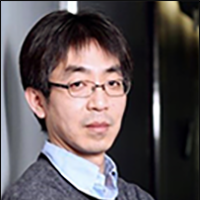 Dr. Hirofumi Tomita is a distinguished figure in computational climate science and atmospheric modeling, with a career defined by significant contributions to the field. Starting as a Postdoctoral Researcher at the Frontier Research System for Global Change from 1999 to 2002, he focused on geophysical fluid dynamics modeling. He subsequently joined JAMSTEC's Frontier Research Center for Global Change, where he conducted groundbreaking research on atmospheric model construction between 2002 and 2007. His later work at the same institution from 2007 to 2010 delved into the complexities of tropical cloud disturbances.
Dr. Hirofumi Tomita is a distinguished figure in computational climate science and atmospheric modeling, with a career defined by significant contributions to the field. Starting as a Postdoctoral Researcher at the Frontier Research System for Global Change from 1999 to 2002, he focused on geophysical fluid dynamics modeling. He subsequently joined JAMSTEC's Frontier Research Center for Global Change, where he conducted groundbreaking research on atmospheric model construction between 2002 and 2007. His later work at the same institution from 2007 to 2010 delved into the complexities of tropical cloud disturbances.
Since 2011, Dr. Tomita has led the Computational Climate Science Research Team at RIKEN's Center for Computational Science, overseeing innovative research initiatives in climate modeling. From 2014 to 2021, he also served as Deputy Project Leader for RIKEN’s Flagship 2020 project (Fugaku project), promoting critical engagement between the application communities and system development teams.
Chandra Verma
 Chandra Verma carried out his undergrad studies at IIT Kanpur, PhD at Univ of York (UK) followed by fellowships at Univ of York. He moved to A*STAR Singapore end 2003 where he leads a group that uses atomistic models of biomolecules for mechanistic discoveries and their translation towards discovery of small molecules, peptides etc. The group works extensively with experimental partners in academia, biotech, pharma and hospitals resulting in several patents in oncology, ophthalmology and antimicrobials. He has a spin off and a startup.
Chandra Verma carried out his undergrad studies at IIT Kanpur, PhD at Univ of York (UK) followed by fellowships at Univ of York. He moved to A*STAR Singapore end 2003 where he leads a group that uses atomistic models of biomolecules for mechanistic discoveries and their translation towards discovery of small molecules, peptides etc. The group works extensively with experimental partners in academia, biotech, pharma and hospitals resulting in several patents in oncology, ophthalmology and antimicrobials. He has a spin off and a startup.
Mohamed Wahib
 Mohamed Wahib is a team leader of the “High Performance Artificial Intelligence Systems Research Team” at RIKEN Center for Computational Science (R-CCS), Kobe, Japan. Prior to that he worked as is a senior scientist at AIST/TokyoTech Open Innovation Laboratory, Tokyo, Japan. He received his Ph.D. in Computer Science from Hokkaido University, Japan. His research interests revolve around the central topic of high-performance programming systems, in the context of HPC and AI. He is actively working on several projects including AI-based science, as well as high-level frameworks for programming traditional scientific applications.
Mohamed Wahib is a team leader of the “High Performance Artificial Intelligence Systems Research Team” at RIKEN Center for Computational Science (R-CCS), Kobe, Japan. Prior to that he worked as is a senior scientist at AIST/TokyoTech Open Innovation Laboratory, Tokyo, Japan. He received his Ph.D. in Computer Science from Hokkaido University, Japan. His research interests revolve around the central topic of high-performance programming systems, in the context of HPC and AI. He is actively working on several projects including AI-based science, as well as high-level frameworks for programming traditional scientific applications.
Zhang Yang
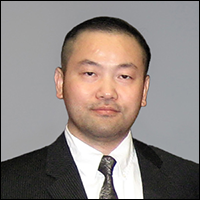 Dr Yang Zhang is a Professor in the Department of Computer Science, the School of Computing, National University of Singapore (NUS). He also serves as a Professor in the Department of Biochemistry at the Yong Loo Lin School of Medicine, NUS, and the Cancer Science Institute of Singapore. The research interests of the Zhang Lab are in artificial intelligence and deep neural network learning, protein folding and structure prediction, and protein design and engineering. The I-TASSER algorithm (https://zhanggroup.org/I-TASSER/) developed in his laboratory was ranked as the number 1 most accurate method for automated protein structure prediction in the community-wide CASP experiments nine times in a row since 2006. Among the honors that Dr Zhang received include the Alfred P Sloan Award, the US National Science Foundation Career Award, and the University of Michigan Basic Science Research Award. He has been recognized as a Thomson Reuters/Clarivate Analytics Highly Cited Researcher seven times since 2015.
Dr Yang Zhang is a Professor in the Department of Computer Science, the School of Computing, National University of Singapore (NUS). He also serves as a Professor in the Department of Biochemistry at the Yong Loo Lin School of Medicine, NUS, and the Cancer Science Institute of Singapore. The research interests of the Zhang Lab are in artificial intelligence and deep neural network learning, protein folding and structure prediction, and protein design and engineering. The I-TASSER algorithm (https://zhanggroup.org/I-TASSER/) developed in his laboratory was ranked as the number 1 most accurate method for automated protein structure prediction in the community-wide CASP experiments nine times in a row since 2006. Among the honors that Dr Zhang received include the Alfred P Sloan Award, the US National Science Foundation Career Award, and the University of Michigan Basic Science Research Award. He has been recognized as a Thomson Reuters/Clarivate Analytics Highly Cited Researcher seven times since 2015.
Naoto Yokoya
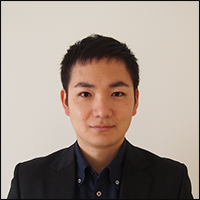 Naoto Yokoya is an Associate Professor at the University of Tokyo and, since 2018, has been leading the geoinformatics team at the RIKEN Center for Advanced Intelligence Project, Tokyo. Previously, he was an Assistant Professor at the University of Tokyo from 2013 to 2017 and an Alexander von Humboldt Fellow at the German Aerospace Center and the Technical University of Munich from 2015 to 2017. He received his M.Eng. and Ph.D. from the Department of Aeronautics and Astronautics at the University of Tokyo in 2010 and 2013, respectively. His research focuses on visual information processing of large-scale real-world scenes.
Naoto Yokoya is an Associate Professor at the University of Tokyo and, since 2018, has been leading the geoinformatics team at the RIKEN Center for Advanced Intelligence Project, Tokyo. Previously, he was an Assistant Professor at the University of Tokyo from 2013 to 2017 and an Alexander von Humboldt Fellow at the German Aerospace Center and the Technical University of Munich from 2015 to 2017. He received his M.Eng. and Ph.D. from the Department of Aeronautics and Astronautics at the University of Tokyo in 2010 and 2013, respectively. His research focuses on visual information processing of large-scale real-world scenes.